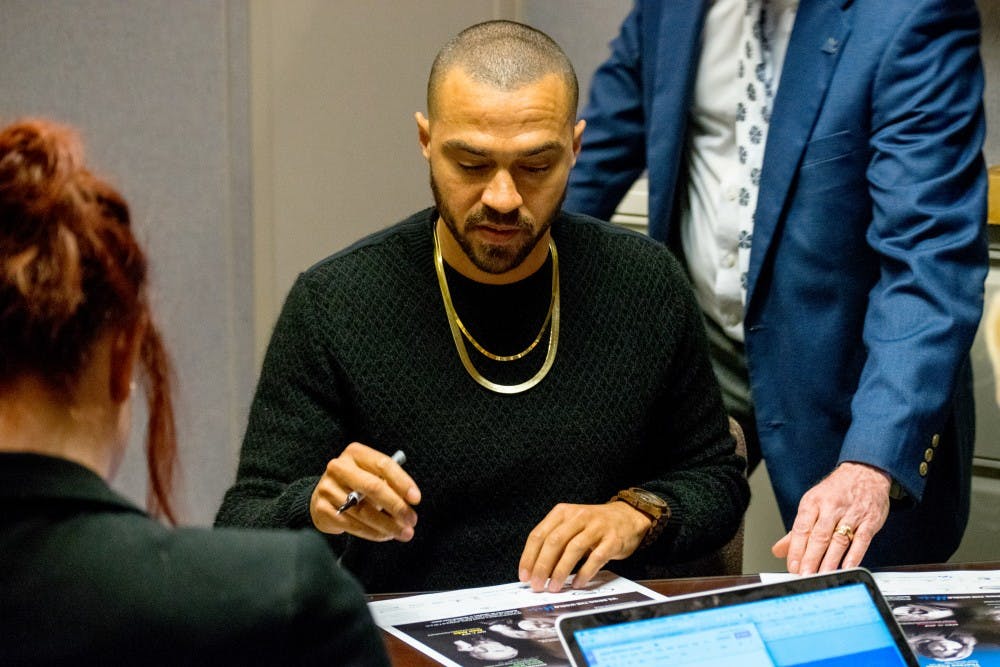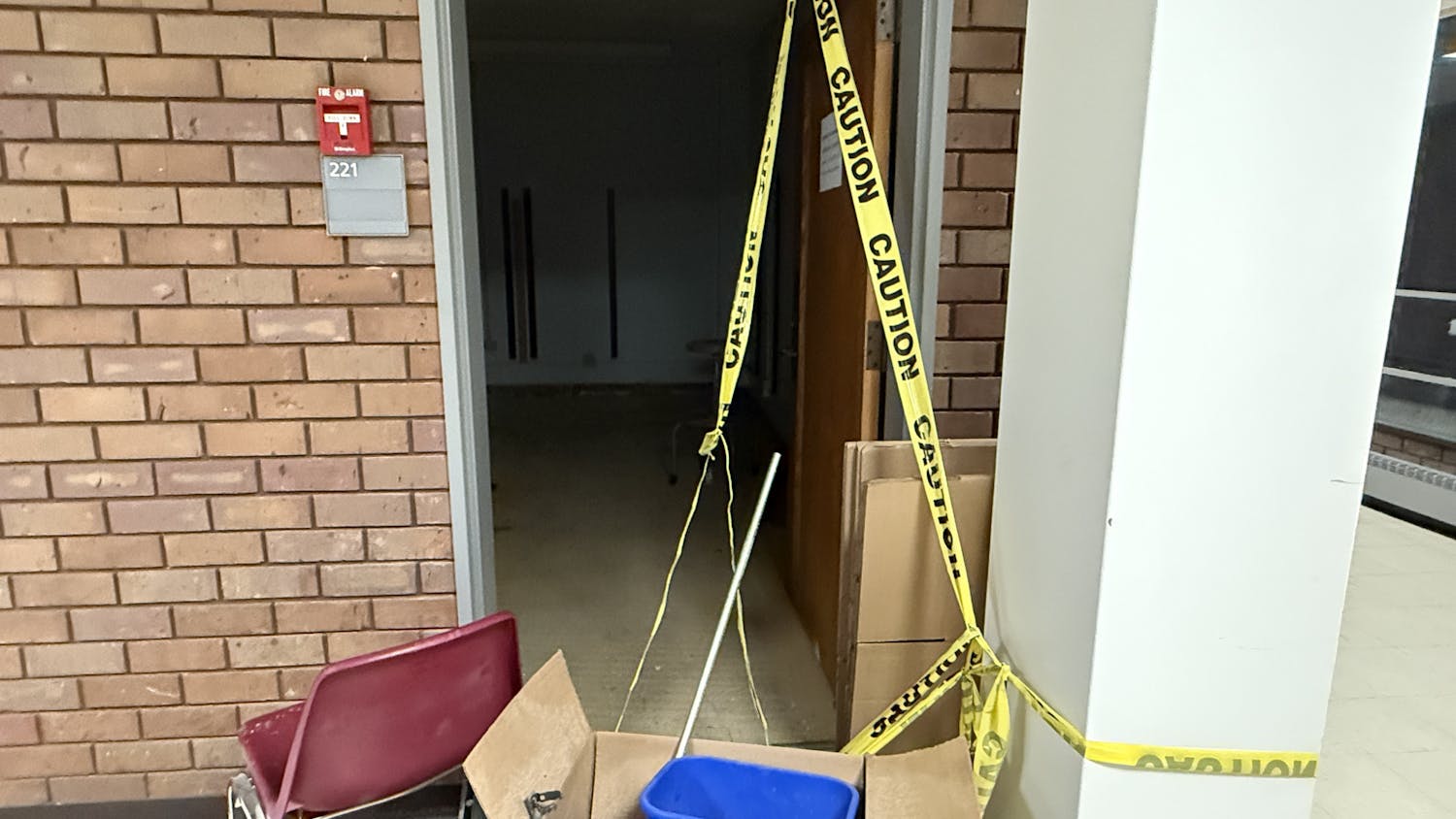Q: Shonda Rhimes, the writer of “Grey’s Anatomy,” has spoken a lot about the importance of having a diverse cast and having representation of minorities. I know you’ve talked a lot about racial inequality in your activist work, so how do you feel your role on “Grey’s Anatomy”connects with your activism?
A: Well, in spaces that are reflexively and routinely reserved and quartered off just for white folks, sometimes just being there is activism. Being there is disruption. Normalizing what Shonda has excelled at is normalizing brownness, otherness. We’re just people. We don’t talk about race on the show. We just are. She just is Asian. She just is Indian. He just is black. And they’re human beings who have flaws and struggles and qualms, and that is one of the most effective forms of activism and demonstration which is you know, [showing] we don’t only exist in peaks and valleys and triumphs and failures. We don’t only exist as a heroic biopic character or a thug. We’re all in the gray. And I think that’s a big part of humanity that’s lost when people try to find a space to process blackness.
Q: Do you think celebrities such as yourself that have a large platform have a responsibility to speak out on important issues?
A: No, I don’t. I was raised and just have a feeling of obligation to my people to be decent and constructive, but I don’t project that onto other people. People can choose what they want to do. And if you just want to sing because you’re an amazing singer, it doesn’t mean you have any more of a responsibility to be a decent, caring human being than a plumber or a teacher. I don’t think that’s fair. And not only is it unfair to put that on certain people that have specific talents that are able to be monetized in a certain way, but it’s also relieving the rest of civilization of their own responsibility. We don’t ask that of each other, so why the hell are you asking this guy just because he can dunk a basketball. Treat people as you want to be treated as they say, so you need to demand of yourself what you demand of others.
Q: Your activism centers around racial inequality and injustice and you also have an African American studies degree from Temple. Last semester, The Spectrum wrote a story called “UB’s black faculty: dwindling and isolated,” that discussed the lack of black faculty at UB. Do you think it is important for universities to hire black professors? And specifically do you think it is important to have black instructors in African American Studies departments?
A: It absolutely is. Representation matters. It further fosters the myth that there’s this dearth of black talent. I think it’s as important to hire people –– non-white folks, non-straight folks –– as it is to nurture them and create a sustainable dynamic for them wherever they work. You can hire people as a prop or a mascot and then let them dwindle as so many corporations do. Or just give them some ceremonial role. But if you can support them, encourage them and also not hold them to an unfair standard, that’s crucial. But yeah when you’re sitting in class you need to hear from people who have lived experiences, not just reading off of a textbook. That’s why you’re paying all this money to go to a school, so you can get something you can’t just get from someone else. And if you just get somebody who read it off a page and now they tell you to write it on a page that’s not worth it.
Q: What advice would you give to college students who want to get involved in social justice activism?
A: Read, read, read, read, read. And listen. You have to have historical context for movement work, understanding liberation movements, understanding white patriarchal structures, understanding the history of this country. Whether that’s readingHoward Zinn’s “A People’s History of the United States ,”whether that’s reading “The African Origins of Civilization," “Guns, Germs and Steel” is an absolutely critical text to read to understand Europe’s domination of the world. Without that foundation of understanding how we got here, you’re really on thin ice.
But like I said about representation of faculty here, just book learning ain’t enough. You’ve got to go attend local organizations that are doing work. Go attend meetings. Participate in rallies and demonstrations or just listen. And when you’re there, listen. Other people’s movements don’t have to center whiteness, and they don’t have to be perfect and right all the time.
An unfair burden of oppressed or disenfranchised folks is that we have to be the first and only to identify something’s wrong because you’re not going to do it. So now we have to decide if we have the brains or the balls or allowance to say something about it and put our job or relationship at risk. And when we say something about it, we have to suffer the consequences. And when somebody does maybe potentially want to accept what we’re saying, they go, well how do you want to fix it? But why the hell is it my job to fix it? I identify it. And live with it. And struggle with it. And fix it? Well, what are you doing? People who benefit from the structures in place need to be active participants in a remedy [to inequality]. So I think it’s about listening and holding up a fair standard. Black and brown folks and women understand that this is not fair. Women get villainized for having dated more than three people in five years but men who do the same thing are high-fived and heroes. And you know suddenly Colin Kaepernick isn’t a good football player while seven really sh*tty white quarterbacks have five, seven, 10 million dollars.
Q: You have experience teaching at public schools in Philadelphia and developed Scholly, an app that helps connect students with scholarships. Education is obviously something that you value. Why do you feel education is important? Do you think it’s important for minority students specifically to have access to education?
A: Education is currency. Education is our ability to be literate in a society of literature. It’s the ability to understand vocabulary that is swirling around us, that is excluding us, that is making money on top of us with our own attributes. You’ve got to be able to be functional if you intend on thriving or just surviving. We have to — particularly Africans in this country — have the added burden of unlearning the 12 years of conditioning of white supremacy in schools. We spend kindergarten through 12th grade being told to worship white people. That you guys did everything, you created everything, that you’re Jesus for God’s sake, when you can’t even stand in the sun for five hours yet somehow you ran all up and down [the Middle East]. So we’re getting conditioned into worshipping everything, which means that we are nothing. We’re told to think we came from the mud and we didn’t exist in any way, shape or form when in fact we are where Greeks came to study. Pythagoras and all these other great philosophers and mathematicians that the Greeks herald had to go to school in Egypt for 20-30 years. That was the center of the universe. That’s where the real Renaissance man came from. That’s where science, mathematics, wrestling, sports, classical music, so many things came from. So it’s important to have that context. I think that for black folks, and for minorities in general, the way the structure is set up, whiteness is to be born on third base and think you hit a triple. We’ve got a lot of catching up to do. That’s why you need to create as many shortcuts as possible for us.
Maddy Fowler is the editorial editor and can be reached at maddy.fowler@ubspectrum.com





